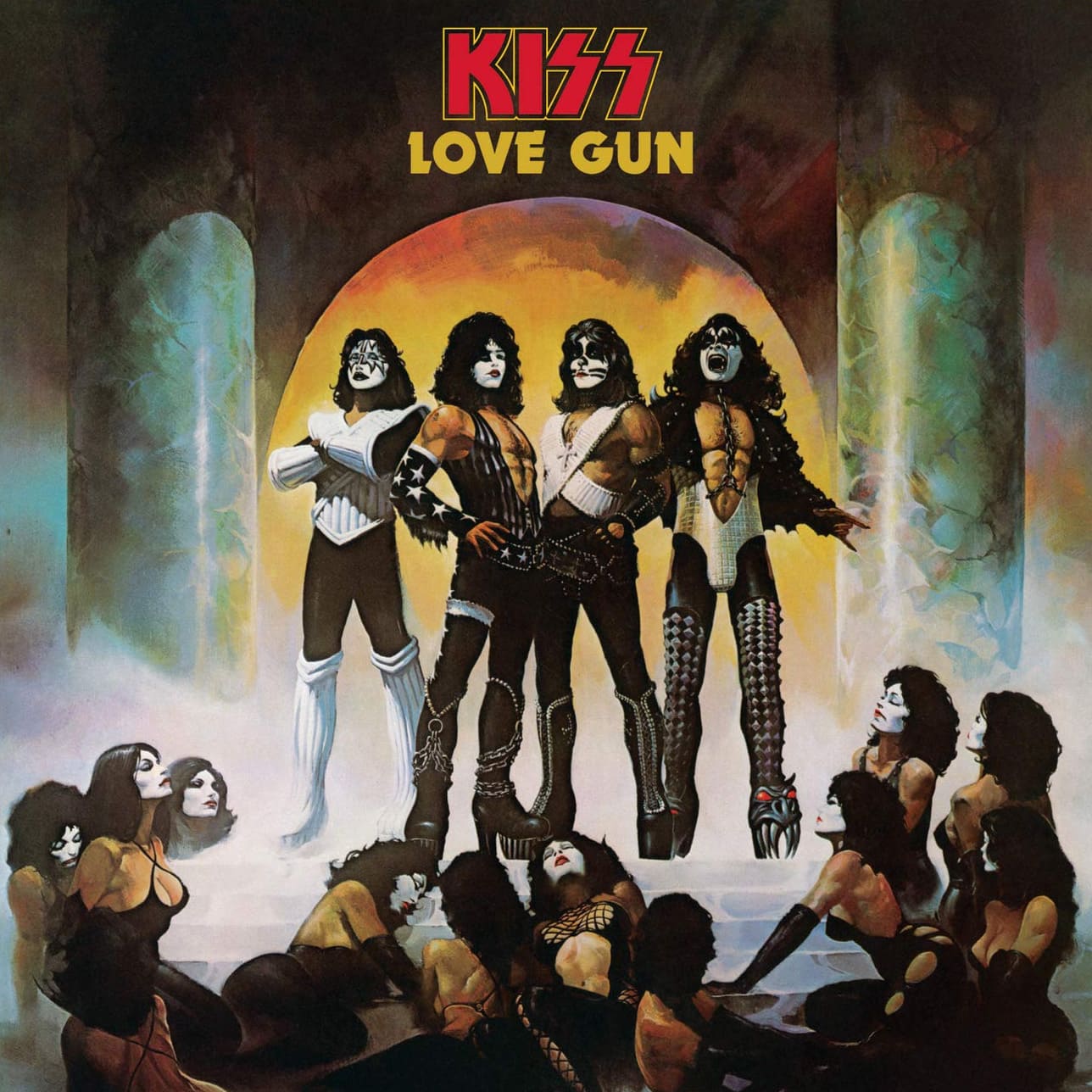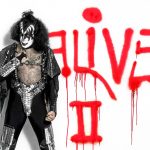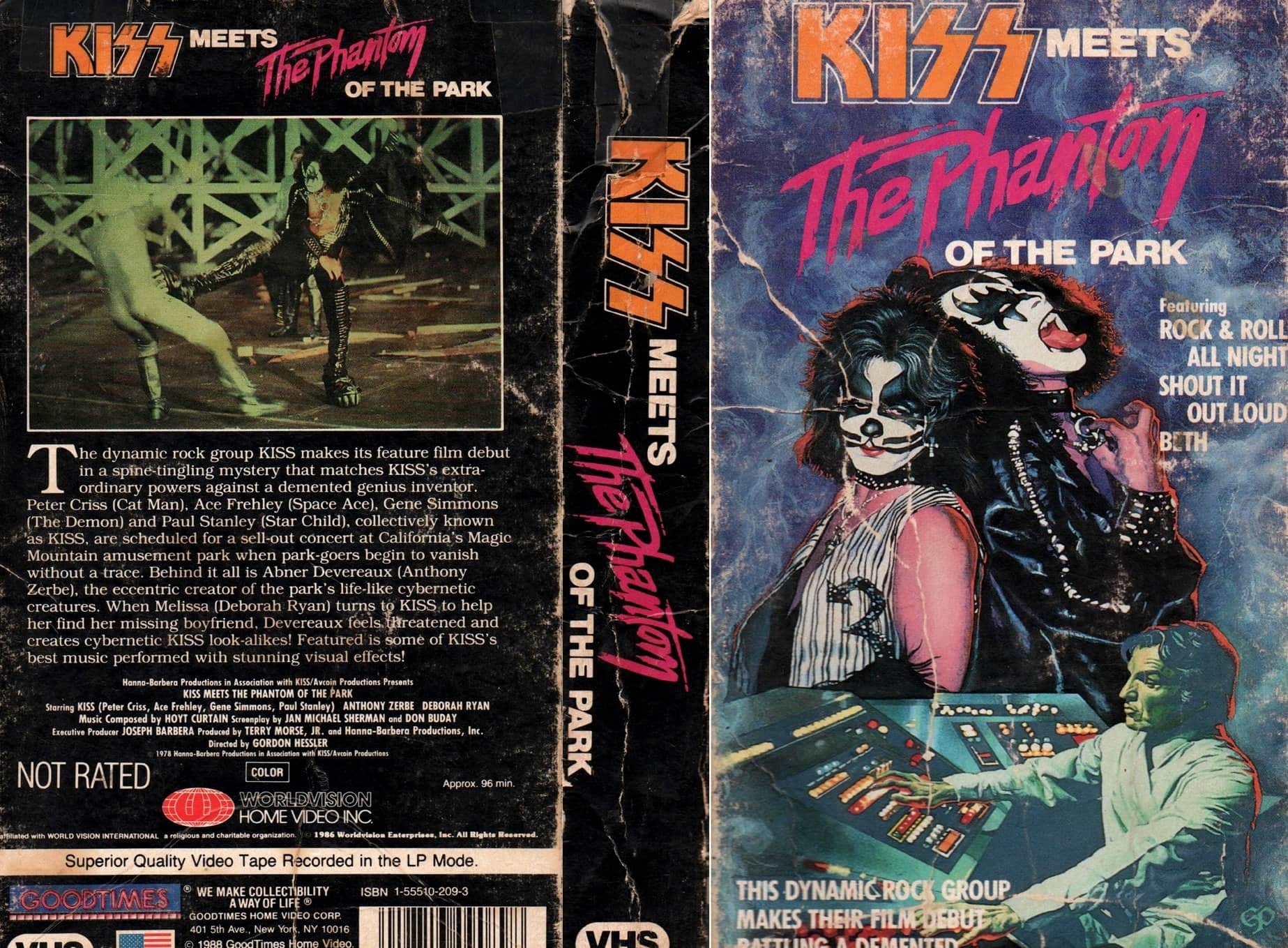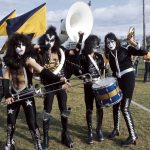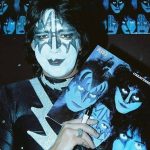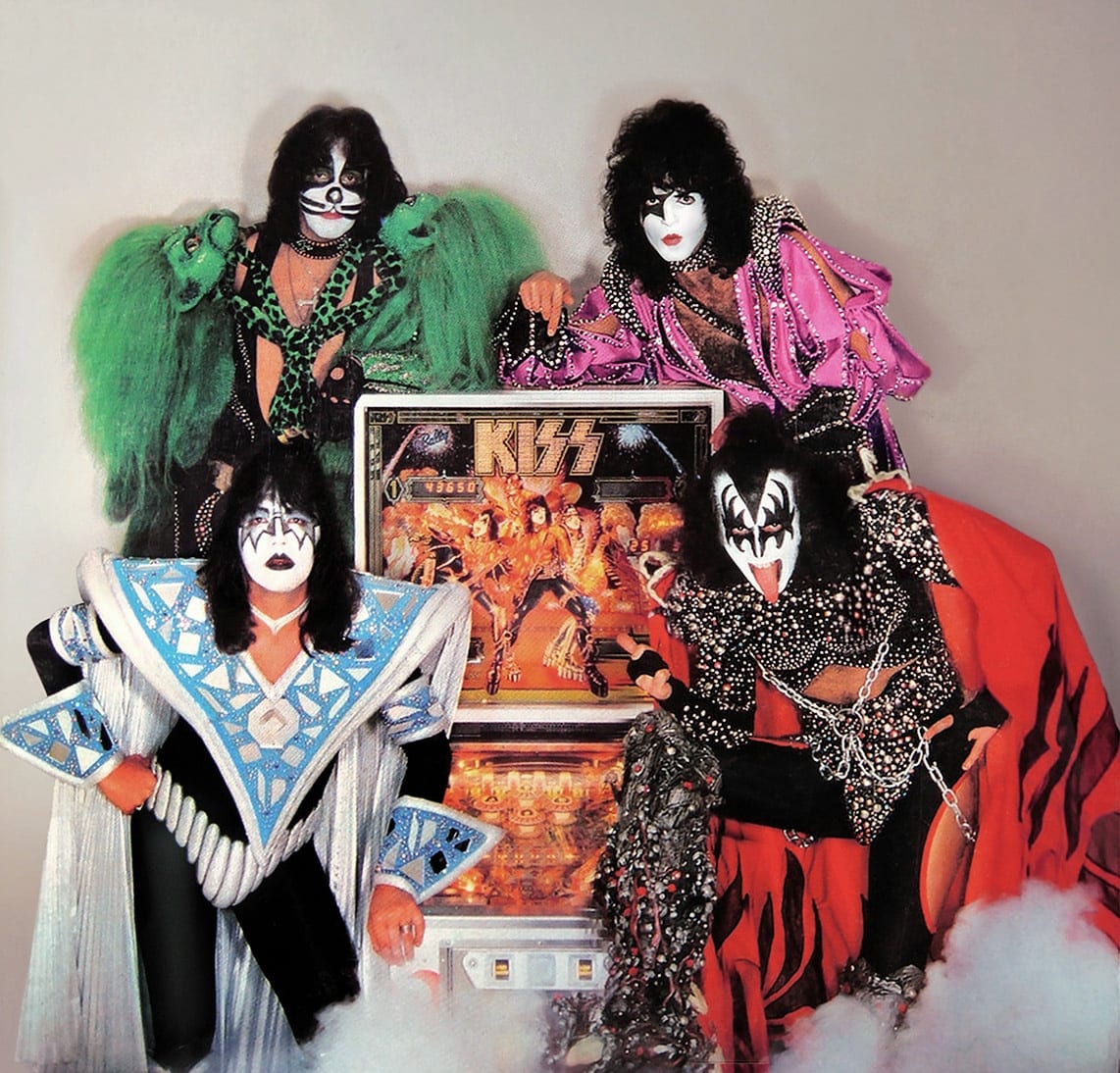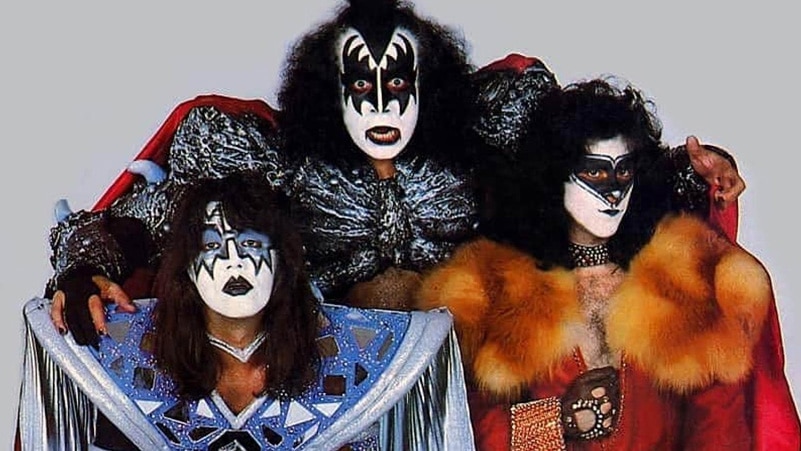On 17. June, 1977, Kiss’ sixth studio album “Love Gun” was released (date according to The Library of Congress). Casablanca Records and FilmWorks shipped one million copies of the album on this date. It was certified platinum and became the band’s first top 5 album on the Billboard 200.
It is the first Kiss album to feature a lead vocal performance from Ace on “Shock Me” a song inspired by an event that took place during the Rock and Roll Over tour when he suffered an electric shock. This was the first lead vocal that he recorded. In his autobiography, he states that he originally intended for Gene to sing the song, but the bassist encouraged him to try it himself. He recorded his lead vocal part while lying on the floor of the studio because he liked the added pressure on his chest. Making “Love Gun” the first album to feature lead vocal performances from all four band members (It was also the last studio album to feature Peter on every song).
Paul Stanley:
At the end of the time in L.A., I flew to New York. The song “Love Gun” came to me in its entirety on the flight—melody, lyrics, all the instrument parts—absolutely complete. It was amazing—and rare for me. I stole the idea of a “love gun” from Albert King’s version of “The Hunter,” which Zeppelin also nicked from for “How Many More Times” on their first album. By the time the plane landed, I was ready to record a demo.
When I got to New York, I called a drummer I knew and went almost immediately to Electric Lady to record the song. By this point I didn’t need to do demos in less lavish studios — I could do them in top-end studios, and Electric Lady was my favorite. I used the same equipment and tape that other bands cut masters on. That worked out to be as much of a curse as a blessing. Sure, the demos sounded great. But with using quality studios for demos came the risk of demo-itis. You get so locked into the version you record as a demo that you lose all flexibility when it comes time to record the track. You’ve worked out all the parts, and it’s hard to erase them and let other people have creative input if they veer from the version you recorded on the demo. Then you’re stuck recording a stiff version of the thing you already did—it robs the final recording of spontaneity. You’re less open to suggestions for change because you already have a fully realized concept. Eventually, in the late 1980s, I stopped doing demos for all those reasons.
The funny thing about “Love Gun” was that even though the album version was recorded as a facsimile of the demo, when we went to cut the album version, Peter couldn’t play the kickdrum pattern on the song. Once Peter cut the track, we had to bring in another drummer to play the extra kickdrum beats Peter couldn’t.
– “Face the music: A life exposed” by Paul Stanley
Peter Criss:
In June of 1977 we released our sixth album, Love Gun. | always liked working with Eddie Kramer, but this wasn’t really a band effort. Except for “Love Gun,” which I loved to play, I thought the songs were pretty mediocre. My song “Hooligan” was butchered. Ace’s song “Shock Me,” which was inspired by his near electrocution onstage one night, featured his first lead vocal as a member of Kiss. I was very happy that he was finally getting a chance to sing, but let’s face it, Ace might just have the worst voice in the world. I thought the best thing about the album was the cardboard gun that came inside. But it didn’t seem to matter, the album went platinum just weeks after it was released. We could do no wrong.
– “Makeup to Breakup: My Life In and Out of Kiss” by Peter Criss
Ace Frehley:
So I sat down and wrote “Shock Me.” Everyone loved it and agreed that it belonged on the next album, Love Gun. My initial thought, as usual, was to turn it over to Gene or Paul and let them handle the vocals. To my surprise, they resisted.
“You should sing this one yourself,” Paul said. “It’s way overdue.”
And that’s how I wound up flat on my back on the floor of a studio at the Record Plant, trying to relax, with the lights turned down low and Eddie Kramer at the board, encouraging me to sing from the gut.
I like Love Gun a lot; I’m proud of the whole album. There are a few things on it, though, that really make me smile. Like some of my leads … and the vocal on “Shock Me.” It never actually occurred to me until that album that I was a viable singer. What I learned is that you don’t have to be a trained vocalist to be a rock singer, any more than you have to be a classically trained musician to play guitar. Just believe in what you’re doing and the audience will go along for the ride.
– “No regrets” by Ace Frehley
Gene Simmons:
To satiate Ace and Peter, we stayed with Eddie Kramer. Eddie’s a great guy, but in no way was the band challenged with Eddie because for one thing Eddie didn’t write songs and Bob Ezrin did. Bob was also an arranger and a conceptualist. He was a guy with a vision who would say, “Okay, what does this mean?” He could take a song and really take it to the next step. Eddie was a terrific guy, but he was basically an engineer. We gave him producer credit because he was called a producer, but Eddie’s an engineer. He would twiddle the knobs and watch over somebody who mixed it. Eddie helped mix it but that’s it. The songs remained as they remained. [On Love Gun and Rock and Roll Over being almost companion albums in sound] We liked the whole process and the direction was very defined. We didn’t want to stray too much from where we were because we were on to a good thing. It felt comfortable. We knew who we were and we knew what the music was. Certainly the band did what it did and you couldn’t confuse what we did with other bands, so we liked the clear identity. I’d give it three stars. “Almost Human” is one of my favorite songs.
– “Kiss: Behind the Mask” by David Leaf and Ken Sharp
Eddie Kramer:
Kiss had learned a lot by that point and wanted to express themselves even more, hence the co-production of Love Gun. We recorded at the Record Plant. I remember cutting the drums for the Love Gun album in the hallway. Going back to the Record Plant, for me, was not the most pleasant experience because Electric Lady is the studio I built for Jimi [Hendrix] and the one I was most happy with. Getting the sounds on the Love Gun album was relatively easy. Getting Ace’s sound was fairly straight-ahead. Getting cool sounds for Paul and Gene was sometimes a little tougher. Gene was easier once I established what to do. You have to differentiate between Paul’s guitar sound and Ace’s sound. It was tougher because you wanted to make sure that Paul’s sound was distinctive away from Ace’s sound. Getting the performances was a little bit tougher even though they were much more experienced by this point. I’m very honest with artists that I work with. I say, “I know you can do a better track” or “That’s a great one, do not touch that one.” At this point Kiss were getting really good. Ace was remarkable. He was the most underrated guitar player. I could always count on him to come through. I could see there was a really distinctive ability with Ace, the ability to play blues and play various styles. He’s a competent guitar player and inventive. I encouraged him to take chances. That was something I enjoyed bringing out of him. It takes time. You can’t expect to have great solos twenty-four hours a day, that’s not going to happen. You have to give the artist breathing room. I did that with all of them, particularly with Ace because I knew I could get some cool sounds out of him. The guy has a very unique take on things.
– “Kiss: Behind the Mask” by David Leaf and Ken Sharp

Ken Kelly’s preliminary sketch of Kiss “Love Gun” album cover.
The album cover was painted by fantasy artist Ken Kelly, who previously contributed the cover for 1976’s Destroyer. A cardboard “Love Gun” (assembly required) was included inside the album, along with a Kiss merchandise order form.


Greg Gross got Ken Kelly to recreate the Kiss “Love Gun” album artwork in 2018. In talking to Mr. Kelly, he pronounced this painting as “the best piece I’ve ever done!”


